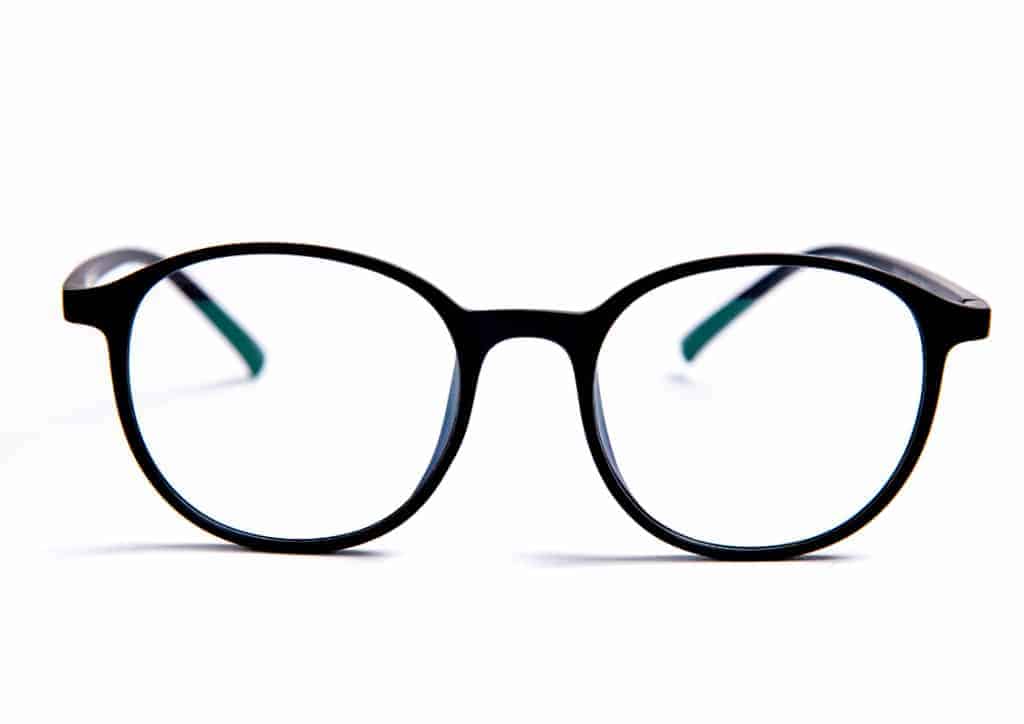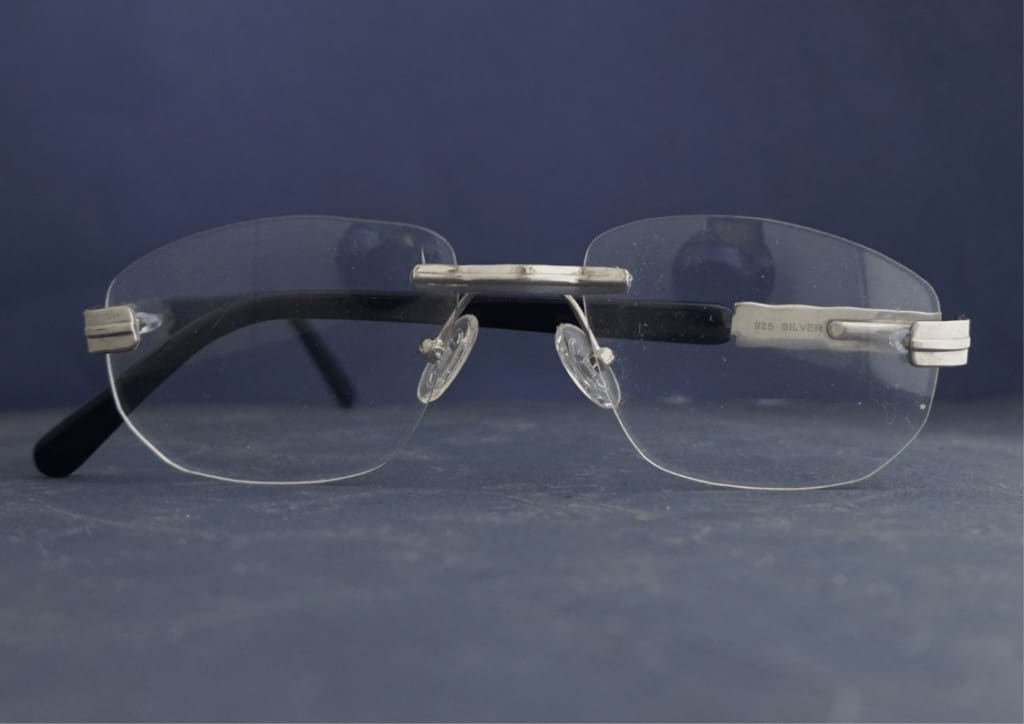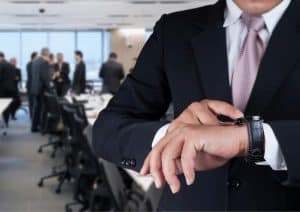Should I Wear Glasses To My Interview Even Though I Don’t Need Them?
In many cases, wearing glasses to an interview can help your chances of getting the job. Glasses, whether they’re prescription or decorative, have been proven to give off an aura of intelligence and competence, which can improve an interviewer’s perceptions of you as a candidate.
Here’s what you need to know about whether or not you should wear glasses to an interview, even if you don’t need them.
Tip! Aside glasses, you can help your chances of being awarded the job by knowing how to best act when first entering an interview room.
How wearing glasses can impact positively upon your interview
According to research dating back to the 1980s, and modern day studies, we tend to associate the wearing of glasses with intelligence, capability, and readiness to function in a work environment.
This assumption is based on some truth; studies have found that those who wear glasses out of necessity tend to actually be smarter on average than those who need no spectacles.
Though there’s no concrete evidence as to why this is true, it may be due to the limitations glasses impose; glasses-wearers are less likely to spend their time outside, participating in vigorous activity because of their limited vision and fragile spectacles. Instead, they tend to spend more time on indoor activities including reading.
It’s reasonable to assume that, because those requiring glasses tend to show this intelligence, the trait became associated with them. Now, though, decorative glasses are cheap and widely available to everyone regardless of visual acuity.
So, anyone can benefit from putting on glasses when they want to ‘look’ smarter.
This is where wearing them to an interview comes into play. Some research suggests that applicants who wear glasses are actually more likely to get hired than those who don’t; your interviewer is more likely to listen to what you have to say and view it in a positive light, meaning your chances for success are much higher.
Which style of glasses should you wear to an interview?
Knowing when to wear glasses is important, but knowing which kind of glasses to wear might be even more so. Here’s what you need to know about which glasses to wear in different situations.

Full-rimmed glasses
Full-rimmed glasses have been associated with intelligence for quite a long time; indeed, they are part of the stereotypical “nerd” persona. These glasses, though thicker and heavier, can give the impression of competence and intelligence.
Full-rimmed glasses are perfect for interviews for new jobs or promotions where you want to appear intelligent and capable. They’re perfect for work in more academic or STEM-based careers, and for meetings in which you want to hold your audience’s attention for important proposals.

Rimless glasses
Rimless glasses benefit from the intelligence-boosting effects of full-rimmed glasses without the negative connotations – usually of unattractiveness – due to their lighter-weight design and effect on the face. In fact, wearing rimless glasses can often be seen as a sign of attractiveness and trustworthiness, which can be helpful in situations that call for more charisma.
Rimless glasses are perfect for customer service job interviews and interviews or meetings with high-ranking company officials whom you would like to impress. They’re also good for virtual meetings, as those tend to be more casual by nature.
When you shouldn’t wear glasses to an interview
Though it’s easy to want to take advantage of the benefits of glasses, there are still times when you shouldn’t wear them.
If you wouldn’t be able to wear glasses during the actual job, then wearing them to the interview will only make it look as if you don’t understand the job’s requirements. If you’re applying for manual work, such as construction, then skip the glasses entirely.
Wearing extremely bold or statement-piece glasses can also cause issues. These glasses can come across as too flashy or inappropriate, especially if the company dress code is more formal and not suited to bright colors and bold patterns. If you’re unsure about the dress code, it may be best to skip the glasses entirely.
Accessorize your dress for an interview
Glasses are not, of course, the only thing your interviewer sees when they form their first impressions of you. Your entire outfit can have an impact on how you are perceived.
Here are some more tips for dressing appropriately for your upcoming interview.
Apply some color psychology
The colors you choose can have a remarkably strong impact on your interviewer’s perceptions of you. If you’re aiming to look professional and authoritative, choose non-distracting options like neutral solids for your main ensemble (such as grey, black, or tan), then accent it with a bolder, more powerful color (like brighter reds and blues) in an underlayer or accessories like a scarf, tie, or handbag.
It’s best to avoid overwhelming patterns in your attire, but simple designs – pinstripes and small florals – can add a personal and memorable touch to your outfit. This is especially true if you’re applying for a position in the fashion industry.
Understand the job environment
Before going into your interview, you should always do research about the company you’re applying to. Part of that research should be to find out the company’s policies regarding dress. You don’t need to know every detail immediately, but you should know the general tone – are they looking for formal, business casual, or completely casual?
Choose an outfit that’s appropriate to the office style. For formal offices, wear a suit (if you’re a woman, a statement dress is appropriate). For business casual, a button-up or nice blouse and slacks or dark jeans are often appropriate. Most simple outfits work for casual environments, as long as they’re still relatively professional.
Keep it simple
As mentioned, when going in for a job interview, you’re going to want to keep your outfits non-distracting so that your interviewer focuses on your words. That means not only dressing appropriately, but also keeping your outfit simple, neat, and clean.
Make sure all of your clothes are wrinkle-free and unstained, and that your hairstyle, makeup (if you choose to wear it), and accessories (yes, including the glasses) are understated. Avoid wearing excessive or very strong perfumes or colognes; you can never know if your interviewer is allergic or has a strong aversion to it.
Wrapping up
Wearing glasses to a job interview won’t guarantee you the position. After all, if you don’t know what you’re talking about, glasses aren’t going to magically make you appear competent. However, if you’re applying to a job in a field you’re confident about with a company you’re passionate about, wearing glasses and appropriate attire can give you an edge over your fellow interviewees.


